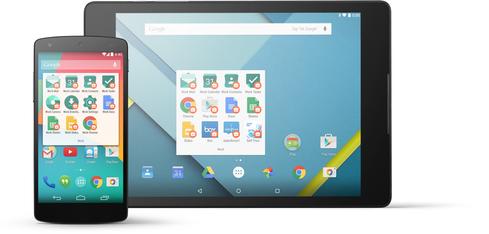With an increased number of partners and strengthened security, Android for Work offers businesses new ways to manage and deploy mobile devices.

.png?width=700&auto=webp&quality=80&disable=upscale)
Microsoft Office On Android: How To Install
Microsoft Office On Android: How To Install (Click image for larger view and slideshow.)
Nine months after introducing Android for Work, an initiative to help adapt Android devices to the needs of businesses, Google is celebrating the addition of new partners and customers.
In a phone interview, Andrew Toy, product management director of Android for Work, said Google's effort to bring Android to enterprises continues to gain momentum. There are more than 19,000 organizations pilot-testing Android devices for their employees, he said, and the number of partners in the program has doubled to more than 80 since launch.
Android for Work addresses the IT issues raised by the bring your own device (BYOD) trend. And while that continues to be a relevant concern for businesses, Toy said that's only one issue Google wants to address.
"BYOD is just one part of mobilizing a business," said Toy. "Our vision is to actually help companies transform using mobility."
The latest Android release, Marshmallow, brings a variety of new possibilities to businesses through new APIs, enhanced controls, and an improved user experience.
As an example of how Android Marshmallow and Android for Work can empower businesses, Toy pointed to support for corporate-owned, single-use (COSU) devices. Using Marshmallow's Android for Work APIs, companies can limit Android functionality to allow access to a single application on a device.
Toy described how one startup that offers a cloud-based dashboard for visualizing enterprise data has created a dedicated Android device to show its dashboard in real time, all the time. Another company that provides care to the elderly has created an Android tablet that only displays its own application, to avoid burdening people who don't want, or are unable, to manage a regular tablet with multiple apps.
"This binding of apps to hardware is sometimes really interesting," said Toy.
Android Marshmallow expands the security options for companies by supporting more administrative controls and a better permission system. But the biggest security improvement is a regular patch schedule. Google has been publishing Android security bulletins for years, but in August the company committed to distributing over-the-air security updates to its Nexus devices.
On Wednesday, in conjunction with Android for Work Live event, BlackBerry plans to announce that its Android-based Priv phone will begin receiving monthly security patches in accordance with the recently established Android patch schedule.
[ Read Google Picks Top Enterprise Apps For Work. ]
BlackBerry joins other Android hardware partners, including HTC, LG, Samsung, and Silent Circle, that have followed Google's lead in establishing a regular security patch schedule. Monthly security updates promise to reduce the amount of time that Android devices can be affected by vulnerabilities.
To make Android for Work more enticing, Google is launching an Android for Work pilot program with its enterprise mobility management (EMM) partners. The first 3,000 companies that set up Android for Work in conjunction with an approved EMM provider before the end of the year will get a free Nexus 5X for testing purposes, Google said.
Google has reason to step up promotion of Android for Work. Earlier this year, Good Technology said that about 72% of the enterprise mobile device activations it sees among its clients are for Apple's iOS devices, while only about 26% run Android.
About the Author(s)
You May Also Like







